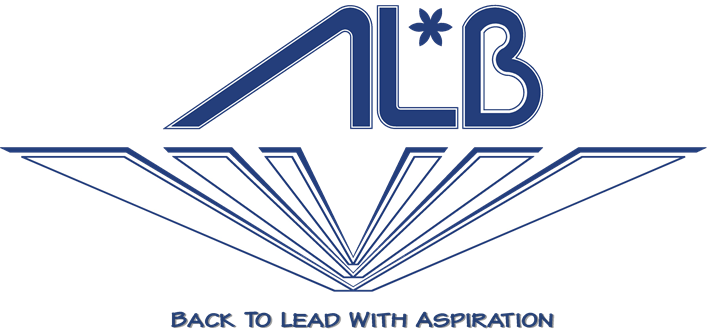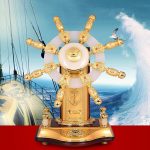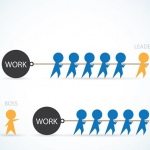Ego Is the Enemy of Good Leadership – Bản ngã là kẻ thù của năng lực lãnh đạo tích cực

On his first day as CEO of the Carlsberg Group, a global brewery and beverage company, Cees ‘t Hart was given a key card by his assistant. The card locked out all the other floors for the elevator so that he could go directly to his corner office on the 20th floor. And with its picture windows, his office offered a stunning view of Copenhagen. These were the perks of his new position, ones that spoke to his power and importance within the company.
Cees spent the next two months acclimating to his new responsibilities. But during those two months, he noticed that he saw very few people throughout the day. Since the elevator didn’t stop at other floors and only a select group of executives worked on the 20th floor, he rarely interacted with other Carlsberg employees. Cees decided to switch from his corner office on the 20th floor to an empty desk in an open-floor plan on a lower floor.
When asked about the changes, Cees explained, “If I don’t meet people, I won’t get to know what they think. And if I don’t have a finger on the pulse of the organization, I can’t lead effectively.”
This story is a good example of how one leader actively worked to avoid the risk of insularity that comes with holding senior positions. And this risk is a real problem for senior leaders. In short, the higher leaders rise in the ranks, the more they are at risk of getting an inflated ego. And the bigger their ego grows, the more they are at risk of ending up in an insulated bubble, losing touch with their colleagues, the culture, and ultimately their clients. Let’s analyze this dynamic step by step.
As we rise in the ranks, we acquire more power. And with that, people are more likely to want to please us by listening more attentively, agreeing more, and laughing at our jokes. All of these tickle the ego. And when the ego is tickled, it grows. David Owen, the former British Foreign Secretary and a neurologist, and Jonathan Davidson, a professor of psychiatry and behavioral sciences at Duke University, call this the “hubris syndrome,” which they define as a “disorder of the possession of power, particularly power which has been associated with overwhelming success, held for a period of years.”
An unchecked ego can warp our perspective or twist our values. In the words of Jennifer Woo, CEO and chair of The Lane Crawford Joyce Group, Asia’s largest luxury retailer, “Managing our ego’s craving for fortune, fame, and influence is the prime responsibility of any leader.” When we’re caught in the grip of the ego’s craving for more power, we lose control. Ego makes us susceptible to manipulation; it narrows our field of vision; and it corrupts our behavior, often causing us to act against our values.
Our ego is like a target we carry with us. And like any target, the bigger it is, the more vulnerable it is to being hit. In this way, an inflated ego makes it easier for others to take advantage of us. Because our ego craves positive attention, it can make us susceptible to manipulation. It makes us predictable. When people know this, they can play to our ego. When we’re a victim of our own need to be seen as great, we end up being led into making decisions that may be detrimental to ourselves, our people, and our organization.
An inflated ego also corrupts our behavior. When we believe we’re the sole architects of our success, we tend to be ruder, more selfish, and more likely to interrupt others. This is especially true in the face of setbacks and criticism. In this way, an inflated ego prevents us from learning from our mistakes and creates a defensive wall that makes it difficult to appreciate the rich lessons we glean from failure.
Finally, an inflated ego narrows our vision. The ego always looks for information that confirms what it wants to believe. Basically, a big ego makes us have a strong confirmation bias. Because of this, we lose perspective and end up in a leadership bubble where we only see and hear what we want to. As a result, we lose touch with the people we lead, the culture we are a part of, and ultimately our clients and stakeholders.
Breaking free of an overly protective or inflated ego and avoiding the leadership bubble is an important and challenging job. It requires selflessness, reflection, and courage. Here are a few tips that will help you:
- Consider the perks and privileges you are being offered in your role. Some of them enable you to do your job effectively. That’s great. But some of them are simply perks to promote your status and power and ultimately ego. Consider which of your privileges you can let go of. It could be the reserved parking spot or, like in Cees ‘t Hart’s case, a special pass for the elevator.
- Support, develop, and work with people who won’t feed your ego. Hire smart people with the confidence to speak up.
- Humility and gratitude are cornerstones of selflessness. Make a habit of taking a moment at the end of each day to reflect on all the people that were part of making you successful on that day. This helps you develop a natural sense of humility, by seeing how you are not the only cause of your success. And end the reflection by actively sending a message of gratitude to those people.
The inflated ego that comes with success — the bigger salary, the nicer office, the easy laughs — often makes us feel as if we’ve found the eternal answer to being a leader. But the reality is, we haven’t. Leadership is about people, and people change every day. If we believe we’ve found the universal key to leading people, we’ve just lost it. If we let our ego determine what we see, what we hear, and what we believe, we’ve let our past success damage our future success.
Rasmus Hougaard and Jacqueline Carter
Havard Business Review
Không phải vị trí cao thì trở nên có khoảng cách với mọi người. Không phải công việc một mình thì sẽ xa cách với mọi người. Không phải giỏi giang thì khác biệt với mọi người…
Cái nguyên nhân chính yếu và duy nhất dẫn tới cái xa cách, khác biệt, khoảng cách với mọi người chính là Bản ngã của chúng ta. Đó chẳng phải là cái ý thức về bản thân (lầm lạc) sao? Chính nó là thủ phạm gây ra sự cô đơn của chúng ta trên mọi nẻo đường!
Nhưng hầu như cũng phải đi cả chặng đường dài vòng vo để rồi hồi đầu trở lại, quay trở vào trong mới nhận ra một cái gì đã có ngay đó từ đầu và trước mắt.
Sumary from Nguyên
Bài viết nổi bật
-
Cân bằng
11 Tháng Tám 2020 Bài viết mới -
Bài học từ trồng cây Phong lan
24 Tháng Sáu 2020 Bài viết mới -
ALB Model of LEADER/ Mô hình ALB về nhà lãnh đạo!
18 Tháng Sáu 2020 Bài viết mới -
Ánh sáng và bóng đêm
02 Tháng Sáu 2020 Bài viết mới







Select your comment provider from settings.